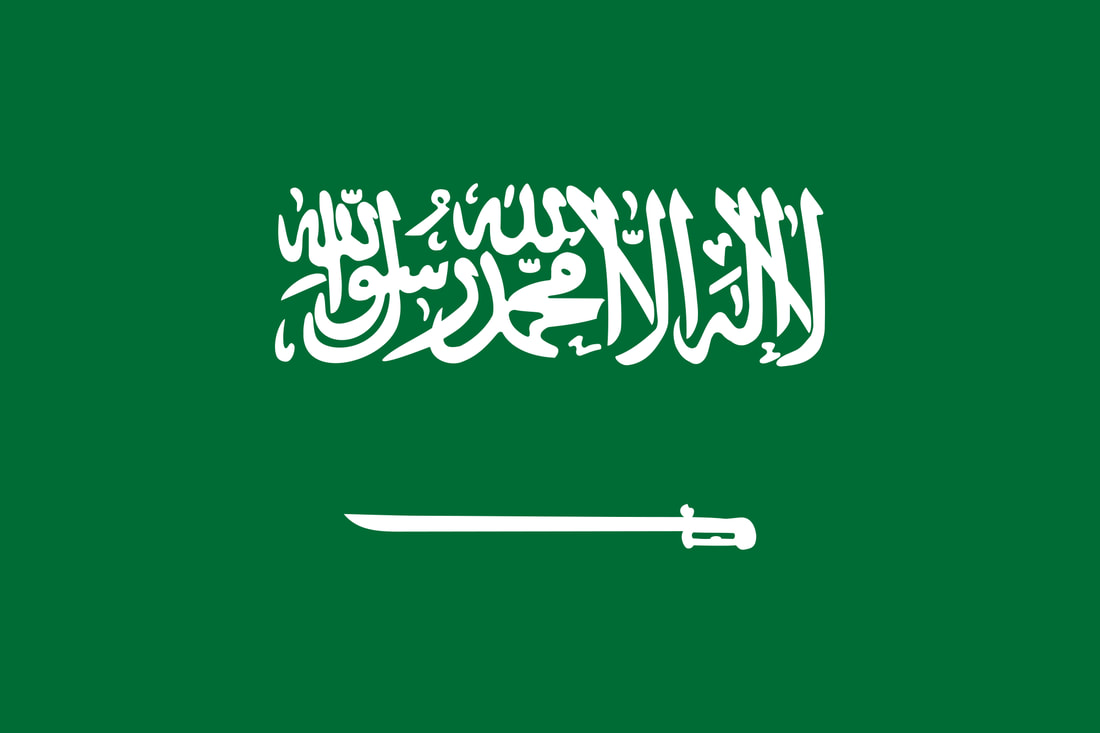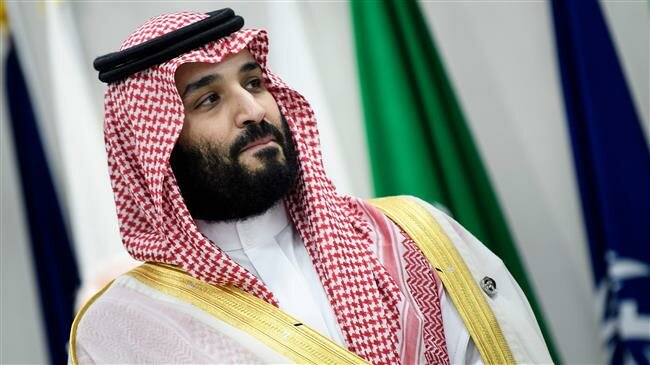25 dec 2019
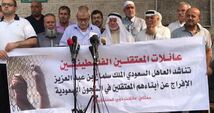
The Saudi group, Prisoners of Conscience, said Tuesday that the Saudi authorities released Palestinian engineer Bashar Anees, who was one of about 60 Palestinians arrested arbitrarily in last April.
According to Prisoners of Conscience, the Saudi security authorities transferred Anees directly from the prison to Riyadh Airport as a prelude to deporting him along with his family to Jordan on Wednesday.
Anees was the second Palestinian released from Saudi jails following the unjustified arrest campaign that targeted last April about 60 Palestinians living in the country.
The Saudi security authorities accuse those Palestinians of being involved in activities in support of the Palestinian cause. However, they are in jails with no trials or indictments.
On April 20, the Saudi authorities had released a Palestinian detainee called Abdullah Odeh.
According to Prisoners of Conscience, the Saudi security authorities transferred Anees directly from the prison to Riyadh Airport as a prelude to deporting him along with his family to Jordan on Wednesday.
Anees was the second Palestinian released from Saudi jails following the unjustified arrest campaign that targeted last April about 60 Palestinians living in the country.
The Saudi security authorities accuse those Palestinians of being involved in activities in support of the Palestinian cause. However, they are in jails with no trials or indictments.
On April 20, the Saudi authorities had released a Palestinian detainee called Abdullah Odeh.
17 dec 2019

The picture taken on June 16, 2019, shows a poster in Gaza City denouncing US President Donald Trump's so-called peace plan, reading, "The deal of the century will not pass."
A Lebanese TV network has published what it reported to be a draft of US President Donald Trump’s controversial deal on the Israeli-Palestinian conflict, which envisages the establishment of a “new Palestine,” with occupied Jerusalem al-Quds remaining under mostly Israeli control and Saudi Arabia replacing Jordan as the custodian of the al-Aqsa Mosque.
According to Al-Mayadeen’s report on Monday, Trump’s so-called peace plan — which he calls the “deal of the century” — would see a trilateral agreement signed between Israel, the Palestine Liberation Organization (PLO) and the Gaza-based Hamas resistance movement.
New Palestine
Under the deal, a “new Palestinian state” would be established in the West Bank and the Gaza Strip, excluding the Israeli settlement blocs that would remain part of the occupied territories.
Shared Jerusalem al-Quds
Additionally, Jerusalem al-Quds — whose eastern sector was occupied by Israel during the Six-Day War in 1967 and illegally annexed — would not be split but would rather be “shared” between Israel and the Palestinian state, with the Arab population of the city becoming residents of Palestine.
The Jerusalem al-Quds municipality would become responsible for the entire city, while the Palestinian state would be responsible for education and would pay the Israeli municipality taxes and utilities.
Jews would not be allowed to purchase Arab homes and vice versa, while no additional areas would be annexed to Jerusalem al-Quds and the city’s holy sites would preserve their status quo.
Al-Aqsa custodianship shifts to Riyadh
Meanwhile, the al-Aqsa Mosque, which is currently administered by the Waqf — an arm of the Jordanian Ministry of Sacred Properties — will be placed under Saudi Arabia’s control.
Egypt gives territory to new Palestine
Regarding the Gaza Strip, the draft deal stipulates that Egypt would grant land to the new Palestinian state to be used for industrial, agricultural and commercial purposes as well as the building of an airport. However, Palestinians would not be allowed to live in the lands provided by Egypt.
Moreover, a highway and a pipeline for treated water would be built between Gaza and the West Bank.
$30bn funding
The wealthy Persian Gulf Arab states, the United States and the European Union would economically sponsor the Washington-crafted deal, providing 70, 20, and 10 percent of the funds, respectively.
“An amount of $30 billion will be allocated over a period of 5 years for projects related to the new Palestinian state,” the purported draft deal said.
The contributions by the Persian Gulf countries would be split proportionate to their oil production capacity.
Palestinians pay for protection
Furthermore, an agreement would be signed between Israel and the new Palestinian state, with the Tel Aviv regime providing protection to Palestine from “external aggression,” while Palestinians pay for it.
The amount the Palestinians will have to pay for protection would be negotiated between the Arab nations and Israel.
Timetable for ‘disarming’ Hamas, building Palestinian airport
Upon the signing of the so-called peace plan, Hamas would hand over its weapons to Egypt and its members would receive monthly salaries from Arab nations.
Gaza's sea borders and land crossings with Israel and Egypt would be opened to international trade.
A year after the agreement is implemented, elections would be held in Palestine.
All Palestinian prisoners would be gradually released from Israeli jails over a period of three years.
Within five years, a seaport and an airport would be constructed for the Palestinian state. Until that time, Palestinians would use Israeli ports.
Palestine's borders would be open to the passage of civilians and goods.
A Chinese company would build a highway that rises 30 meters above the ground connecting Gaza to the West Bank.
The Jordan Valley would remain under Israeli control. Highway 90 would be expanded to link the Palestinian state with Jordan.
Penalties for objection
If Israel rejects the deal, the US will end economic support for the regime.
If Hamas and the PLO oppose the agreement, Washington will end all financial support it provides to Palestinians and prevent funding provided by other countries.
If the PLO accepts the plan and Hamas or the Islamic Jihad dismiss it, then the two groups would bear the responsibility of their decision.
In any military confrontation between Israel and Hamas, the US will support Israel.
That US plan on the Israeli-Palestinian conflict — which is widely reported to be biased towards the Tel Aviv regime — has already been unanimously rejected by all Palestinian factions.
The US unveiled the economic portion of its initiative during a conference in Bahrain in June despite a Palestinian boycott.
Palestinians stopped recognizing the US as a mediator in the conflict with the Tel Aviv regime in 2017, after Trump recognized occupied Jerusalem al-Quds as Israel’s “capital” in defiance of international law.
A Lebanese TV network has published what it reported to be a draft of US President Donald Trump’s controversial deal on the Israeli-Palestinian conflict, which envisages the establishment of a “new Palestine,” with occupied Jerusalem al-Quds remaining under mostly Israeli control and Saudi Arabia replacing Jordan as the custodian of the al-Aqsa Mosque.
According to Al-Mayadeen’s report on Monday, Trump’s so-called peace plan — which he calls the “deal of the century” — would see a trilateral agreement signed between Israel, the Palestine Liberation Organization (PLO) and the Gaza-based Hamas resistance movement.
New Palestine
Under the deal, a “new Palestinian state” would be established in the West Bank and the Gaza Strip, excluding the Israeli settlement blocs that would remain part of the occupied territories.
Shared Jerusalem al-Quds
Additionally, Jerusalem al-Quds — whose eastern sector was occupied by Israel during the Six-Day War in 1967 and illegally annexed — would not be split but would rather be “shared” between Israel and the Palestinian state, with the Arab population of the city becoming residents of Palestine.
The Jerusalem al-Quds municipality would become responsible for the entire city, while the Palestinian state would be responsible for education and would pay the Israeli municipality taxes and utilities.
Jews would not be allowed to purchase Arab homes and vice versa, while no additional areas would be annexed to Jerusalem al-Quds and the city’s holy sites would preserve their status quo.
Al-Aqsa custodianship shifts to Riyadh
Meanwhile, the al-Aqsa Mosque, which is currently administered by the Waqf — an arm of the Jordanian Ministry of Sacred Properties — will be placed under Saudi Arabia’s control.
Egypt gives territory to new Palestine
Regarding the Gaza Strip, the draft deal stipulates that Egypt would grant land to the new Palestinian state to be used for industrial, agricultural and commercial purposes as well as the building of an airport. However, Palestinians would not be allowed to live in the lands provided by Egypt.
Moreover, a highway and a pipeline for treated water would be built between Gaza and the West Bank.
$30bn funding
The wealthy Persian Gulf Arab states, the United States and the European Union would economically sponsor the Washington-crafted deal, providing 70, 20, and 10 percent of the funds, respectively.
“An amount of $30 billion will be allocated over a period of 5 years for projects related to the new Palestinian state,” the purported draft deal said.
The contributions by the Persian Gulf countries would be split proportionate to their oil production capacity.
Palestinians pay for protection
Furthermore, an agreement would be signed between Israel and the new Palestinian state, with the Tel Aviv regime providing protection to Palestine from “external aggression,” while Palestinians pay for it.
The amount the Palestinians will have to pay for protection would be negotiated between the Arab nations and Israel.
Timetable for ‘disarming’ Hamas, building Palestinian airport
Upon the signing of the so-called peace plan, Hamas would hand over its weapons to Egypt and its members would receive monthly salaries from Arab nations.
Gaza's sea borders and land crossings with Israel and Egypt would be opened to international trade.
A year after the agreement is implemented, elections would be held in Palestine.
All Palestinian prisoners would be gradually released from Israeli jails over a period of three years.
Within five years, a seaport and an airport would be constructed for the Palestinian state. Until that time, Palestinians would use Israeli ports.
Palestine's borders would be open to the passage of civilians and goods.
A Chinese company would build a highway that rises 30 meters above the ground connecting Gaza to the West Bank.
The Jordan Valley would remain under Israeli control. Highway 90 would be expanded to link the Palestinian state with Jordan.
Penalties for objection
If Israel rejects the deal, the US will end economic support for the regime.
If Hamas and the PLO oppose the agreement, Washington will end all financial support it provides to Palestinians and prevent funding provided by other countries.
If the PLO accepts the plan and Hamas or the Islamic Jihad dismiss it, then the two groups would bear the responsibility of their decision.
In any military confrontation between Israel and Hamas, the US will support Israel.
That US plan on the Israeli-Palestinian conflict — which is widely reported to be biased towards the Tel Aviv regime — has already been unanimously rejected by all Palestinian factions.
The US unveiled the economic portion of its initiative during a conference in Bahrain in June despite a Palestinian boycott.
Palestinians stopped recognizing the US as a mediator in the conflict with the Tel Aviv regime in 2017, after Trump recognized occupied Jerusalem al-Quds as Israel’s “capital” in defiance of international law.
25 nov 2019
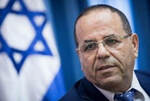
Former Israeli Communications Minister, Ayyoub al-Qarra, an Arab Druze member of Benjamin Netanyahu’s Likud Party, said that Israel was advancing its normalization ties with various Arab countries, and next year, Israelis will be able to open businesses and have normal political tries with Arab Gulf states.
The Maan News agency quoted al-Qarra stating that his recent visit to the United Arab Emirates was “great and historic,” and added that the normal ties between Israel, and these Arab states will be openly declared after the United States presents its “peace plan.”
He added that he already started meetings and communications with senior political leaders in Bahrain and that the official declaration of this normalization was only delayed due to the corruption investigations into Israeli Prime Minister Benjamin Netanyahu, and the impeachment inquiry of U.S. President Donald Trump.
In an interview with i24news, al-Qarra said that the idea of a gas pipeline between Saudi Arabia and Israel is possible, and the Saudi monarchy is capable of implementing such a project, according to Maan.
He also said that the idea of the gas pipeline was first made by a Gulf state, without specifying which.
When asked about confirming a meeting took place between Netanyahu and the Saudi Crown Prince, Mohammad Bin Salman, the Israeli minister refused to answer, and only said that such issues are sensitive.
He also said that he is personally working with a state in the Gulf to arrange future visits by senior Israeli officials to Saudi Arabia and the Emirates, and added that “soon, Muslims with Israeli citizenship will be allowed to enter Mecca for pilgrimage using their Israeli-issued passports,” and citizens of these states will be able to visit “Israel, especially Jerusalem.”
Al-Qarra added that a prince from the United Arab Emirates recently visited Israel along with his wife, where she received medical treatment at an Israeli hospital.
He also said that he previously visited Qatar on behalf of the Netanyahu government, and held meetings with its senior political leaders.
The Maan News agency quoted al-Qarra stating that his recent visit to the United Arab Emirates was “great and historic,” and added that the normal ties between Israel, and these Arab states will be openly declared after the United States presents its “peace plan.”
He added that he already started meetings and communications with senior political leaders in Bahrain and that the official declaration of this normalization was only delayed due to the corruption investigations into Israeli Prime Minister Benjamin Netanyahu, and the impeachment inquiry of U.S. President Donald Trump.
In an interview with i24news, al-Qarra said that the idea of a gas pipeline between Saudi Arabia and Israel is possible, and the Saudi monarchy is capable of implementing such a project, according to Maan.
He also said that the idea of the gas pipeline was first made by a Gulf state, without specifying which.
When asked about confirming a meeting took place between Netanyahu and the Saudi Crown Prince, Mohammad Bin Salman, the Israeli minister refused to answer, and only said that such issues are sensitive.
He also said that he is personally working with a state in the Gulf to arrange future visits by senior Israeli officials to Saudi Arabia and the Emirates, and added that “soon, Muslims with Israeli citizenship will be allowed to enter Mecca for pilgrimage using their Israeli-issued passports,” and citizens of these states will be able to visit “Israel, especially Jerusalem.”
Al-Qarra added that a prince from the United Arab Emirates recently visited Israel along with his wife, where she received medical treatment at an Israeli hospital.
He also said that he previously visited Qatar on behalf of the Netanyahu government, and held meetings with its senior political leaders.
23 nov 2019

Husam Zomlot, the Palestinian ambassador to the United Kingdom, hailed the U.K. Labor Party, the main opposition in the U.K., for vowing to suspend British arms sales to Israel, the Palestinian News and Info Agency (WAFA) reported.
Labor Party leader, Jeremy Corbyn launched his new manifesto on Thursday, saying it was “the most radical and ambitious plan to transform our country for decades.”
In its section on internationalism and diplomacy, it commits a Labor government to “immediately” suspend arms sales to Saudi Arabia and Israel. “This is an important step towards providing international protection to our people from the flagrant and daily violations of the occupation state,” he continued.
The manifesto vows to “conduct a root-and-branch reform of our arms exports regime so ministers can never again turn a blind eye to British-made weapons being used to target innocent civilians.”
Zomlot commented on the manifesto, “The announcement by the Labor Party of its intention to suspend arms sales to Israel for the first time, is a historic development and a victory for the just Palestinian cause.”
Ambassador Zomlot also praised the Liberal Democrat Party, whose manifesto incidentally pledged to “officially recognize an independent state of Palestine”.
He thanked the leadership and members of both parties for the growing support for the just cause of Palestine, saying that Britain’s recognition of the State of Palestine is a moral and legal duty for Britain, given its historic role in Palestine.
He called on all British parties to follow suit and “do what is right for the Palestinian people.” Zomlot added, “It is the duty of British political parties to align themselves with the right of peoples to freedom, justice and self-determination, and to defend the international order based on one law for all.”
Labor Party leader, Jeremy Corbyn launched his new manifesto on Thursday, saying it was “the most radical and ambitious plan to transform our country for decades.”
In its section on internationalism and diplomacy, it commits a Labor government to “immediately” suspend arms sales to Saudi Arabia and Israel. “This is an important step towards providing international protection to our people from the flagrant and daily violations of the occupation state,” he continued.
The manifesto vows to “conduct a root-and-branch reform of our arms exports regime so ministers can never again turn a blind eye to British-made weapons being used to target innocent civilians.”
Zomlot commented on the manifesto, “The announcement by the Labor Party of its intention to suspend arms sales to Israel for the first time, is a historic development and a victory for the just Palestinian cause.”
Ambassador Zomlot also praised the Liberal Democrat Party, whose manifesto incidentally pledged to “officially recognize an independent state of Palestine”.
He thanked the leadership and members of both parties for the growing support for the just cause of Palestine, saying that Britain’s recognition of the State of Palestine is a moral and legal duty for Britain, given its historic role in Palestine.
He called on all British parties to follow suit and “do what is right for the Palestinian people.” Zomlot added, “It is the duty of British political parties to align themselves with the right of peoples to freedom, justice and self-determination, and to defend the international order based on one law for all.”
16 oct 2019
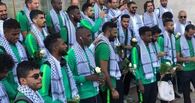
The Palestinian BDS National Committee (BNC) said that the Saudi soccer delegation’s visit to occupied Palestine at this particular time can only be regarded as “an act of official normalization,” citing a decision by the Saudi team in 2015 refusing to enter the country.
"In the context of the dangerous official normalization of the Saudi regime - along with the UAE, Bahrain, Oman, Qatar and others - with Israel and the growing normal security and political relations between them, [the visit] is part of the attempts to liquidate the Palestinian cause through the so-called Israeli-US deal of the century," BNC said in a statement on Tuesday.
BNC also condemned “the types of sports normalization represented by some Arab countries hosting Israeli sports teams in international and regional championships, most recently in Qatar and the UAE, thus defying the Arab popular boycott of the occupying power.”
"In the context of the dangerous official normalization of the Saudi regime - along with the UAE, Bahrain, Oman, Qatar and others - with Israel and the growing normal security and political relations between them, [the visit] is part of the attempts to liquidate the Palestinian cause through the so-called Israeli-US deal of the century," BNC said in a statement on Tuesday.
BNC also condemned “the types of sports normalization represented by some Arab countries hosting Israeli sports teams in international and regional championships, most recently in Qatar and the UAE, thus defying the Arab popular boycott of the occupying power.”
15 oct 2019
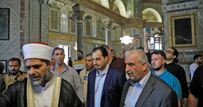
A state of high tension prevailed at the Aqsa Mosque in Occupied Jerusalem on Monday after a Saudi soccer delegation visited the holy site under security protection by Israeli and Palestinian Authority (PA) forces.
According to local media sources, Israeli police forces arrested many Palestinians, including three from the 1948 occupied lands, after they protested the Saudi sports delegation’s visit to the Aqsa Mosque and its normalization with the Israeli occupation.
Meanwhile, verbal altercations took place between Palestinian worshipers and PA security officers, who escorted the Saudi delegation during their tour of the Aqsa Mosque. video
PA security officers used foul language to criticize protesting women at the Mosque, local sources said.
The delegation’s visit has been seen by many Palestinians and Arabs as breaching a decades-long Arab boycott of the Israeli occupation state and an act of normalization with it because the Saudis obtained Israeli permits to play a match in the occupied West Bank.
The Saudi team’s trip for Tuesday's World Cup qualifier match marks a change in policy for the Gulf state, which has previously played against Palestine in third countries to avoid seeking Israeli travel permission.
According to local media sources, Israeli police forces arrested many Palestinians, including three from the 1948 occupied lands, after they protested the Saudi sports delegation’s visit to the Aqsa Mosque and its normalization with the Israeli occupation.
Meanwhile, verbal altercations took place between Palestinian worshipers and PA security officers, who escorted the Saudi delegation during their tour of the Aqsa Mosque. video
PA security officers used foul language to criticize protesting women at the Mosque, local sources said.
The delegation’s visit has been seen by many Palestinians and Arabs as breaching a decades-long Arab boycott of the Israeli occupation state and an act of normalization with it because the Saudis obtained Israeli permits to play a match in the occupied West Bank.
The Saudi team’s trip for Tuesday's World Cup qualifier match marks a change in policy for the Gulf state, which has previously played against Palestine in third countries to avoid seeking Israeli travel permission.
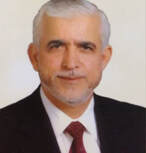
Mohamed al-Khudari 81
The Palestinian Legislative Council (PLC) has appealed to Saudi King Salman bin Abdul-Aziz to order the release of dozens of Palestinian detainees in the Kingdom.
The appeal was made by Ahmed Bahar, first deputy speaker of the PLC, during his meeting on Tuesday with relatives of Palestinian detainees in Saudi Arabia.
Addressing the detainees’ relatives, Bahar affirmed that their relatives in Saudi Arabia did not violate Saudi laws.
He noted that Mohamed al-Khudari, a senior Hamas official, have been detained by the Saudi authorities for several months, with no guilt, although he is over 80 years old and suffering from multiple chronic health problems.
The Palestinian Legislative Council (PLC) has appealed to Saudi King Salman bin Abdul-Aziz to order the release of dozens of Palestinian detainees in the Kingdom.
The appeal was made by Ahmed Bahar, first deputy speaker of the PLC, during his meeting on Tuesday with relatives of Palestinian detainees in Saudi Arabia.
Addressing the detainees’ relatives, Bahar affirmed that their relatives in Saudi Arabia did not violate Saudi laws.
He noted that Mohamed al-Khudari, a senior Hamas official, have been detained by the Saudi authorities for several months, with no guilt, although he is over 80 years old and suffering from multiple chronic health problems.
